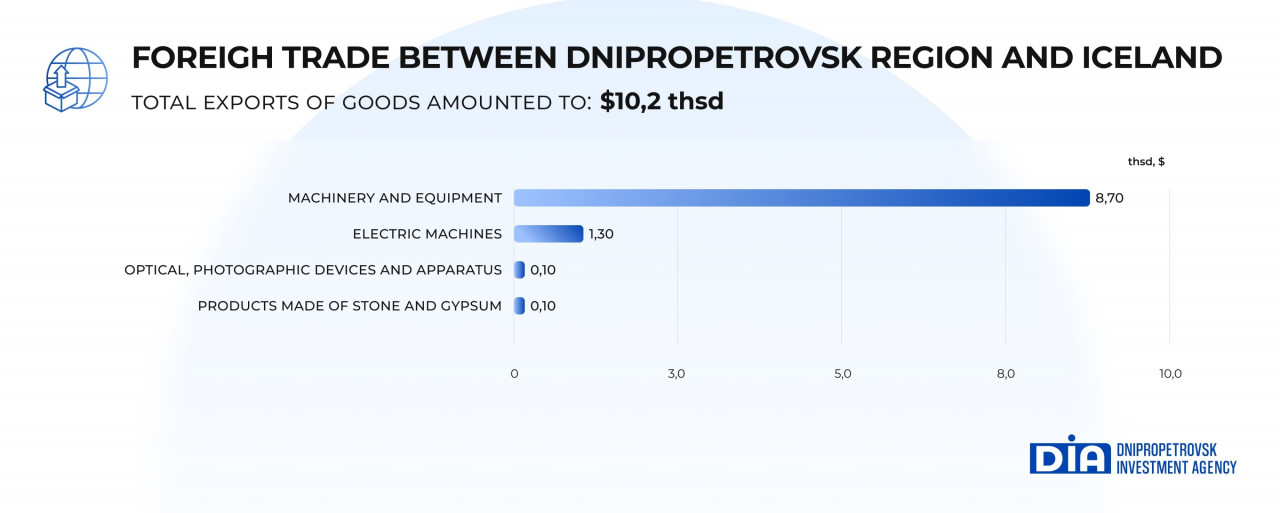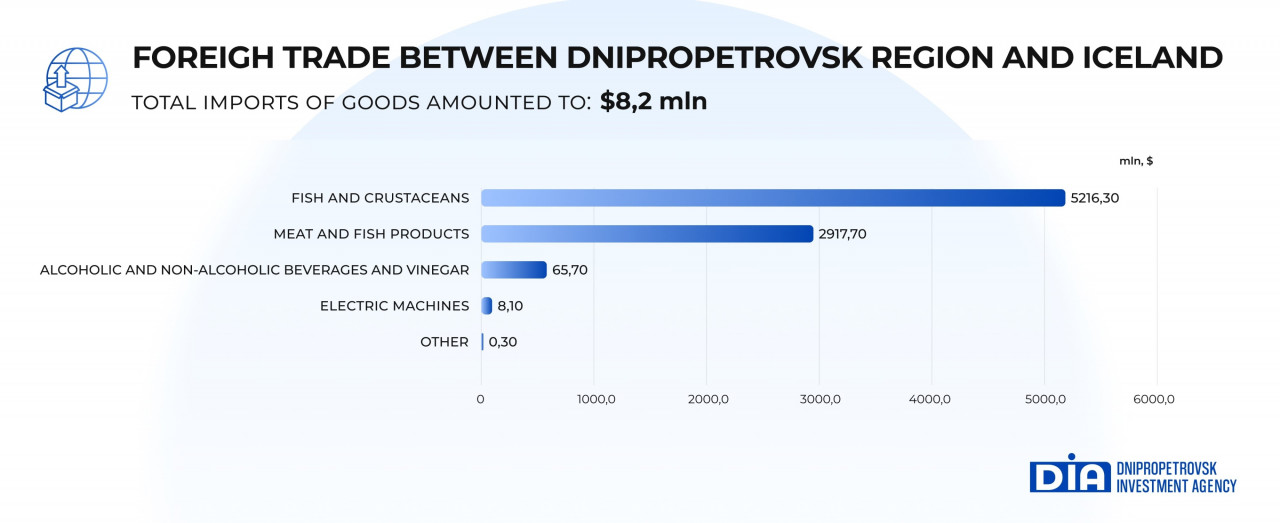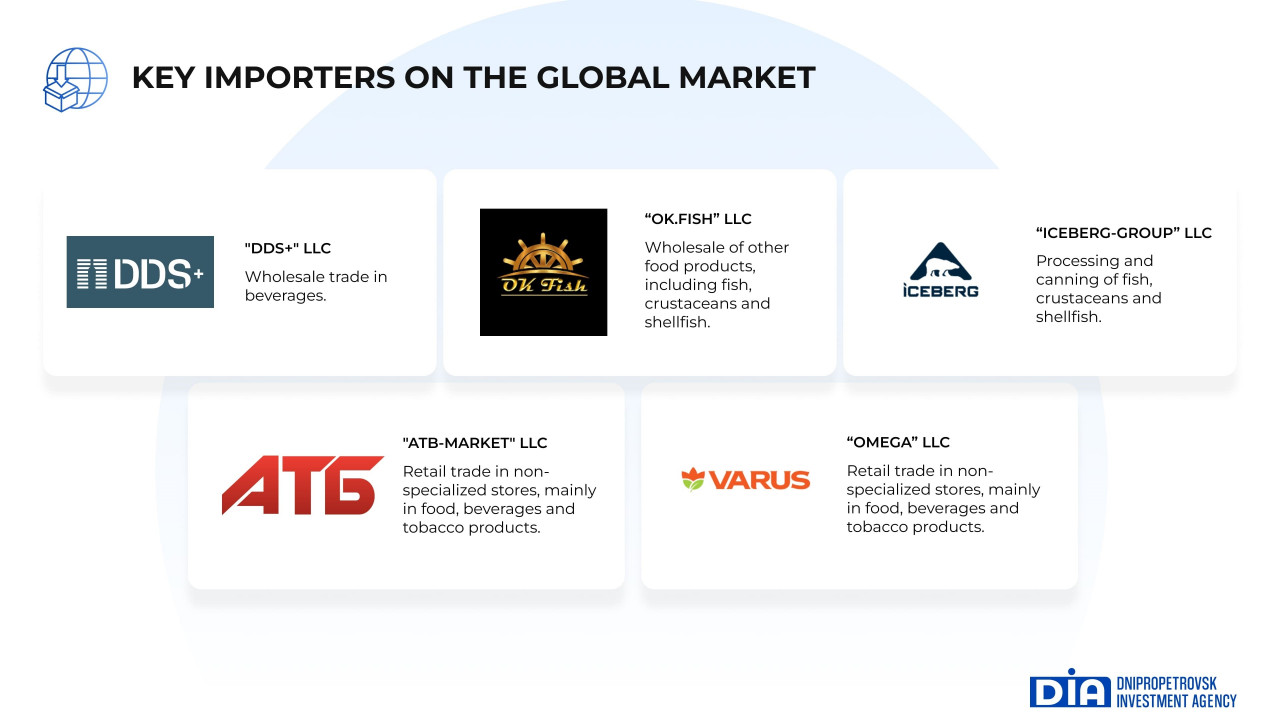Doing business

Iceland has been actively supporting Ukraine in its fight against russian aggression, providing both financial and humanitarian assistance. Since the beginning of the full-scale russian invasion, the island country has provided Ukraine with approximately 2.9 billion Icelandic krona (about $20 million) in economic and humanitarian support and 2.6 billion Icelandic krona ($18.6 million) in support of Ukraine’s defense.
Official Reykjavik is also participating in international initiatives aimed at holding russia accountable for its aggression against Ukraine. In particular, the country has joined the UN group on the establishment of a special tribunal for the crime of russian aggression. Iceland continues to work closely with the EU in maintaining pressure on russia through tough international sanctions, which include sanctions against sectors of the russian economy and individuals inside or outside the russian federation who support or profit from the war.
In April 2024, the Icelandic Parliament approved a resolution on long-term support for Ukraine, which provides for further assistance in various areas. The country has committed to allocate at least $29 million annually during the years 2024–2028, subject to annual approval by the Parliament. The overall budget, the division between military and civilian support, and payments for specific needs will be determined annually.
In May 2024, Ukraine and Iceland signed an Agreement on Security Cooperation and Long-Term Support, which reaffirms unwavering support for the independence, sovereignty, and territorial integrity of Ukraine within its internationally recognized borders as of 1991, including its territorial sea. Iceland will continue to support recovery and reconstruction efforts, as well as the protection of critical infrastructure necessary to provide the population of Ukraine with electricity, heat, water, education, and other services.
In addition, Iceland has joined the IT Coalition and the Demining Coalition, which provide support to Ukraine, and announced the allocation of over $350,000 for medical assistance through NATO’s Comprehensive Assistance Package. At the same time, the country has pledged over $2 million to the Czech initiative for the purchase of ammunition in support of Ukraine, as well as the purchase of equipment for the Ukrainian military.
To support Ukraine’s defense in confronting the russian invasion, Iceland has purchased and transferred ten fuel trucks for the needs of the Ukrainian army, with a total value of $416,000. It has also transferred 12,000 units of winter clothing to Ukraine. These include merino wool sweaters, hats, winter gloves, socks, shoes and outerwear. Thus, Iceland continues to support Ukraine in its confrontation with russian aggression.
The development of mutually beneficial trade and economic cooperation also remains an important priority for the two countries. Analysis of export and import operations of the Dnipropetrovsk region with Iceland demonstrates a growing level of partnership relations, as the mentioned state is an important trading partner of the region.
According to the results of 2023, the volume of exports of goods from the Dnipropetrovsk region amounted to $10.2 thousand and increased 9 times compared to 2022. Among the goods that are in demand among Icelandic consumers are ferrous metal products, machinery and equipment, fats and vegetable oils, cocoa and products from it, etc.

Imports of goods from Iceland to the Dnipropetrovsk region amounted to $8.2 million and increased almost 2 times compared to 2022. The Dnipropetrovsk region traditionally purchased: fish and crustaceans, meat products, fish, alcoholic and non-alcoholic beverages, and more.

Import operations were carried out by 19 importing companies.
TOP-5 importing companies (ranking by volume of imported products):

Import operations were mainly carried out by trade, food and processing enterprises.
Source: information for the preparation of the article was taken from open online sources